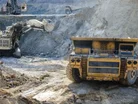S&P Global: Copper Discoveries Fall, Despite Growing Demand

Latin America remains the global leader in copper discoveries, according to the S&P Global report, with the region accounting for 55.6% of discovered copper, totalling 730.9mn metric tons.
Chile and Peru are the primary locations for copper exploration globally, which combined account for 573.9mn metric tons of the copper discovered within Latin America. The report identifies the top three largest discoveries as Collahuasi and Los Bronces Underground in Chile, and Cerro Verde in Peru.
The US and Canada rank third, with 10% of discovered copper. However, the report notes that some major discoveries in these countries face challenges. The Pebble deposit in Alaska, for example, has encountered regulatory issues and public opposition.
"The copper industry faces a critical juncture," the report says. "While demand for the metal continues to grow, the decline in major new discoveries poses significant challenges for future supply."
Copper plays a crucial role in the transition to clean energy. The metal's excellent conductivity makes it essential for electric vehicles, wind turbines, and solar panels. As countries worldwide aim to reduce carbon emissions, demand for copper continues to rise.
S&P Global, a leading provider of financial intelligence and analytics, has released its annual analysis of major copper discoveries. The report covers deposits discovered between 1990 and 2023. It includes only those containing at least 500,000 metric tons of copper in reserves, resources, and past production.
The analysis identified 239 copper deposits discovered during this period. These deposits contain 1.315 billion metric tons of copper. The report added six previously unrecognised discoveries and removed one that no longer met the criteria.
Higher exploration budgets, yet copper discoveries fall
The report reveals a concerning trend in the copper industry. Despite a 12% increase in exploration budgets in 2023, only four discoveries were recorded in the past five years. These new finds account for just 4.2 million metric tons of copper.
This decline highlights a shift in industry focus. Companies are increasingly concentrating on extending known deposits rather than seeking new ones. In the 1990s and early 2000s, 50% to 60% of copper exploration budgets were allocated to grassroots exploration. In 2023, this figure dropped to a record low of 28%.
The report suggests this trend is likely to persist unless there is a significant change in exploration strategies. However, the authors note that recent discoveries may grow over time. They point to 15.9 million metric tons of new copper from initial resource announcements in the past six years.
Latin America dominates copper discoveries
Latin America remains the global leader in copper discoveries, according to the S&P Global report. The region accounts for 55.6% of the discovered copper in the dataset, totalling 730.9 million metric tons. Chile and Peru are the primary locations for copper exploration globally.
These two countries combined account for 573.9 million metric tons of the copper discovered within Latin America. The report identifies the top three largest discoveries as Collahuasi and Los Bronces Underground in Chile, and Cerro Verde in Peru.
The United States and Canada rank third, with 10% of discovered copper. However, the report notes that some major discoveries in these countries face challenges. The Pebble deposit in Alaska, for example, has encountered regulatory issues and public opposition.
"The copper industry faces a critical juncture," the report concludes. "While demand for the metal continues to grow, the decline in major new discoveries poses significant challenges for future supply."

